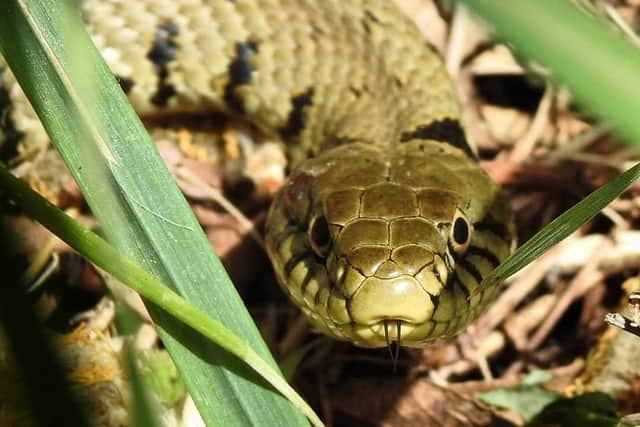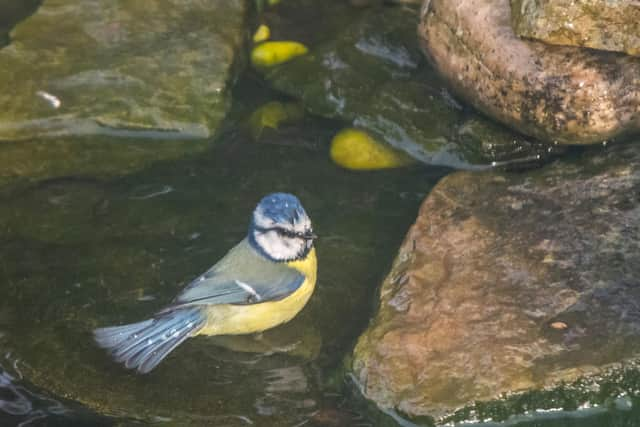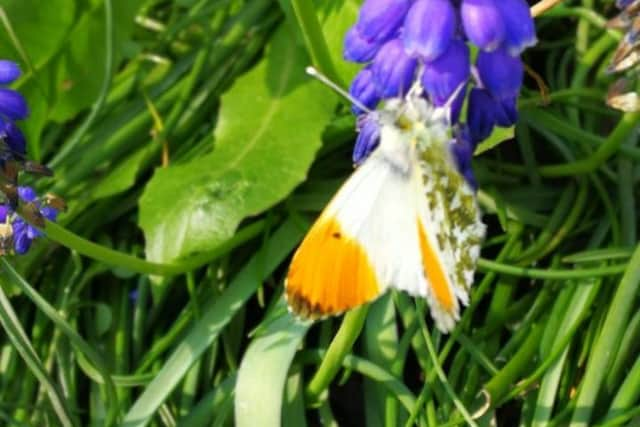'Nature offering solace': Public seeing and hearing more wildlife in lockdown
and live on Freeview channel 276
Since the beginning of the Covid-19 restrictions there had been a rise in the number of people reporting sightings to their local RSPB and noticing the wildlife in their gardens and on their doorstep.
The increasing trend was first noticed on social media as part of the wildlife charity’s popular Breakfast Birdwatch.
Advertisement
Hide AdAdvertisement
Hide AdJan Elsworth, a spokesperson for the RSPB in Yorkshire, said: "People have been finding solace in nature.


"We've had people telling us they have seen red kites over North Yorkshire and buzzards and peregrine falcons.
"Other people have seen goldfinches and the other day there was a blue tit having a bath in someone's pond. They are so bright and cheerful.
Mrs Elsworth, 52, also said there had been a rise in the number of reporting for different types of butterflies appearing in local gardens.
Advertisement
Hide AdAdvertisement
Hide AdTony Whitehead, spokesperson for RSPB in England, added at a national level there has also been a significant increase in "first sightings" of bird species.


"We’ve had people telling us they have seen bullfinch and greenfinch for the first time and people who have seen buzzards over their garden.
"We’ve had reports of herons in gardens too and people seeing jays when they’ve never noticed them.”
The RSPB said these are not unusual sightings, but simply a result of more people spending more time at home and locally.
Advertisement
Hide AdAdvertisement
Hide AdMrs Elsworth, 52, who is the visitor operations manager at the Fairburn Ings-based RSBP, Castleford, said: "Most birds are in decline and wildlife has been struggling along for quite a number of years now".


For example long-term monitoring by the British Trust for Ornithology (BTO) shows that starling numbers have fallen by 66 per cent in Britain since the mid-1970s.
"At the moment people are noticing things in the environment that they have passed by and never looked at before," she said.
"Hopefully when this is over, it will lead to a time where people do take nature more seriously."
Advertisement
Hide AdAdvertisement
Hide AdMr Whitehead added: This uplift in interest, and of people’s increased connection to nature is really heartening, and it’s to be hoped that it will continue once the restrictions are lifted.”
In the wider environment, particularly in some urban areas, the RSPB said that some wildlife may also be starting to respond to lack of people, including grass snakes.
Mrs Elseworth, who lives in Sherburn-in-Elmet, said: "I am getting reports of seeing them (grass snakes) in gardens which would have been fairly unusually a few years ago."
However the RSPB dismissed reports from around the world of animals that species are “returning” to places they are not normally seen but rather species could be losing the “fear response” they have to normally busy places.
Advertisement
Hide AdAdvertisement
Hide AdThe RSPB also said it was important to dismiss claims that nature will “increase” both locally and nationally as a response to the coronavirus pandemic.
"We are still in an ecological emergency, and it will take much more than a few months “quiet” to put nature back, nature that we’ve been losing for decades," Mr Whitehead said.
"Indeed, for many species that rely on how we manage land such as nature reserves, the current restrictions may have a detrimental effect.
He added wildlife charities such as the RSPB still need public support, perhaps "now more than ever".
Advertisement
Hide AdAdvertisement
Hide Ad"We really hope that the increase in interest we are seeing will translate into the support that nature so badly needs,” he said.
Join our new coronavirus Facebook group for the latest confirmed news and advice as soon as we get it www.facebook.com/groups/yorkshirecoronavirus
_________________________________________
Editor’s note: first and foremost - and rarely have I written down these words with more sincerity - I hope this finds you well.
Almost certainly you are here because you value the quality and the integrity of the journalism produced by The Yorkshire Post’s journalists - almost all of which live alongside you in Yorkshire, spending the wages they earn with Yorkshire businesses - who last year took this title to the industry watchdog’s Most Trusted Newspaper in Britain accolade.
Advertisement
Hide AdAdvertisement
Hide AdAnd that is why I must make an urgent request of you: as advertising revenue declines, your support becomes evermore crucial to the maintenance of the journalistic standards expected of The Yorkshire Post. If you can, safely, please buy a paper or take up a subscription. We want to continue to make you proud of Yorkshire’s National Newspaper but we are going to need your help.
Postal subscription copies can be ordered by calling 0330 4030066 or by emailing [email protected]. Vouchers, to be exchanged at retail sales outlets - our newsagents need you, too - can be subscribed to by contacting subscriptions on 0330 1235950 or by visiting www.localsubsplus.co.uk where you should select The Yorkshire Post from the list of titles available.
If you want to help right now, download our tablet app from the App / Play Stores. Every contribution you make helps to provide this county with the best regional journalism in the country.
Sincerely. Thank you.
James Mitchinson
Editor